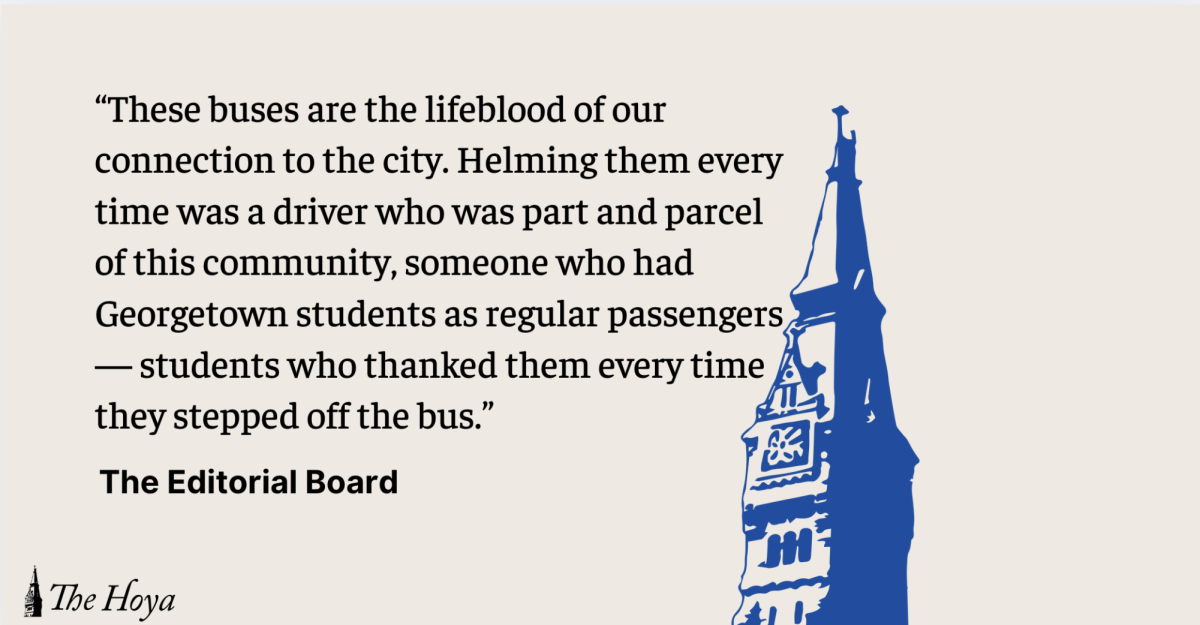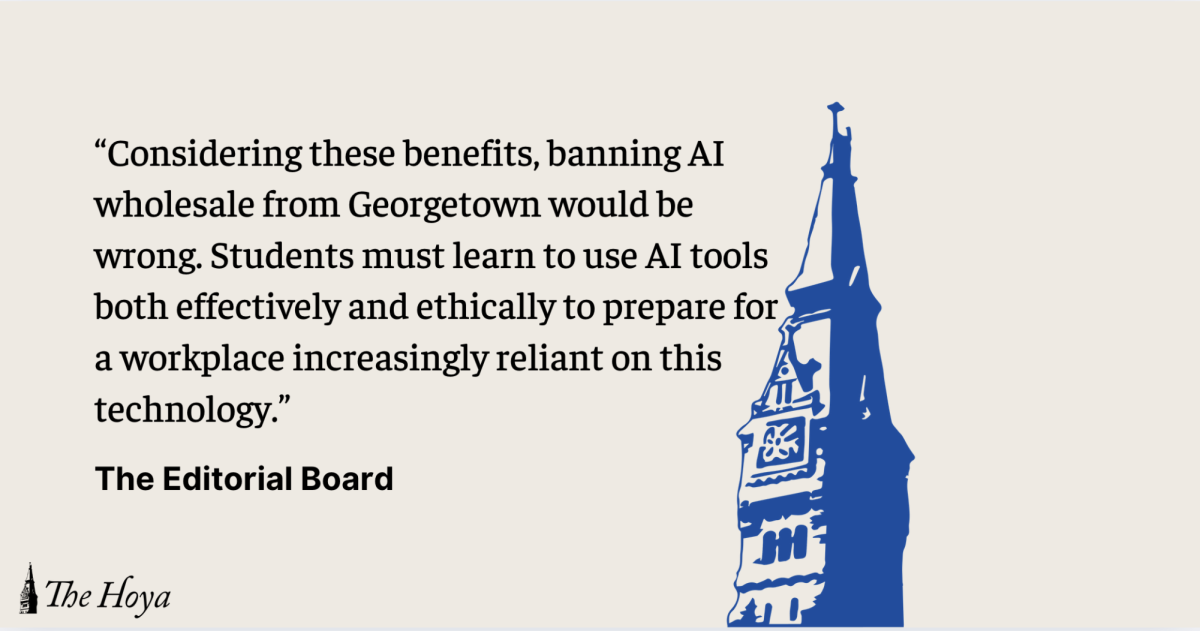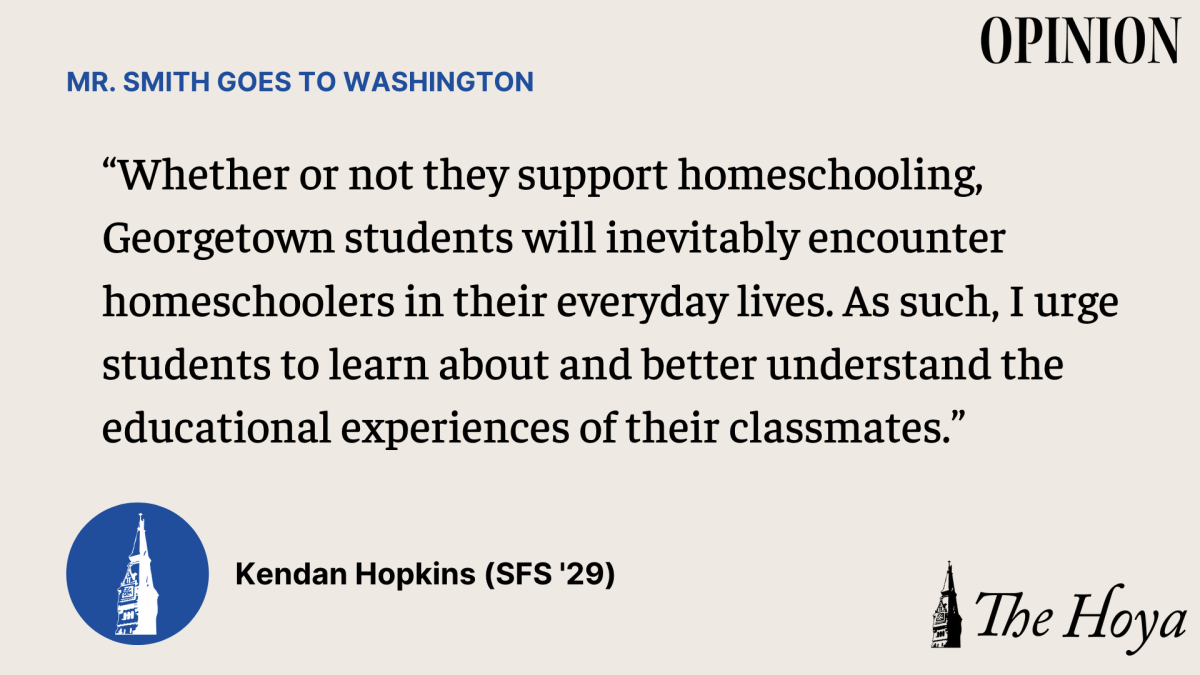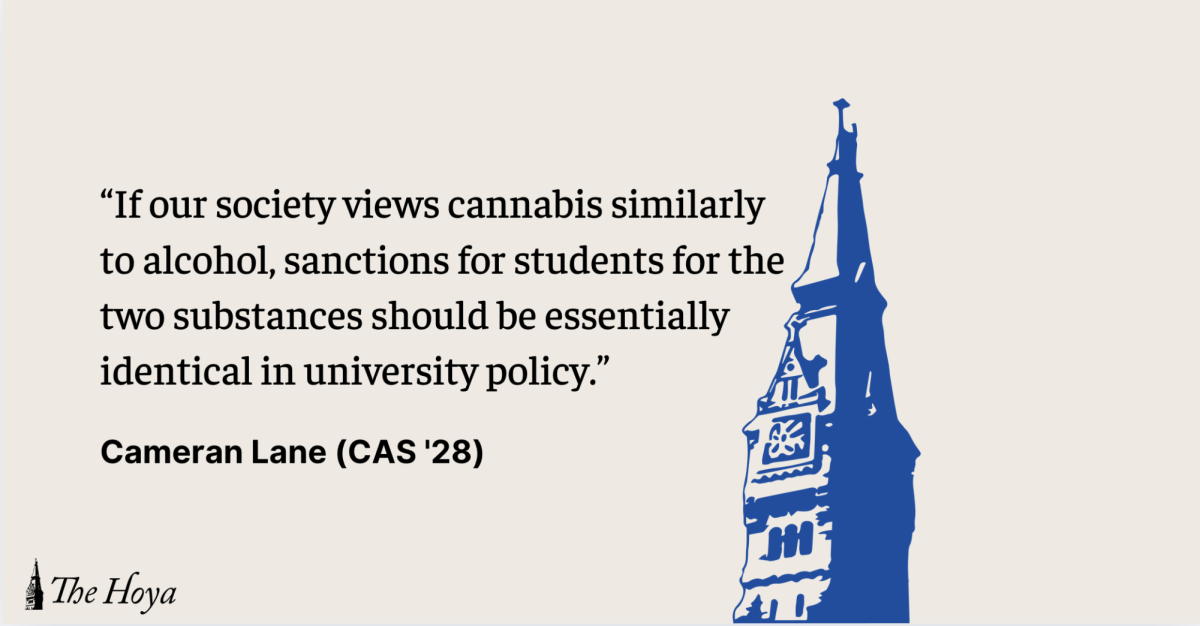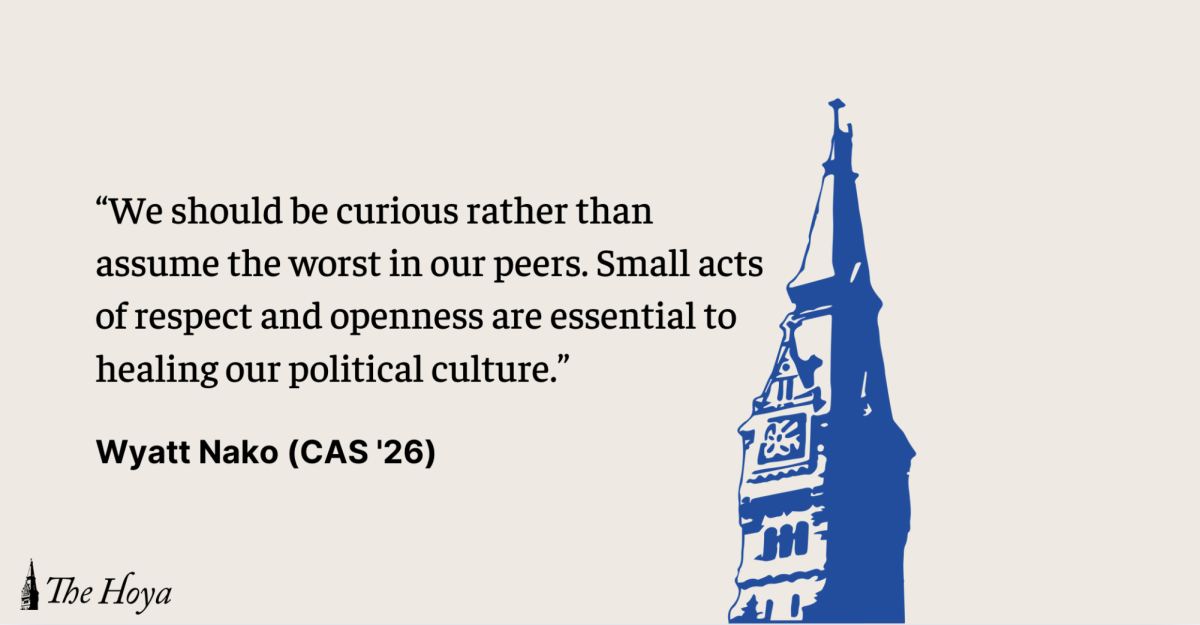Since 1974, the drivers of Georgetown University Transportation Shuttle (GUTS) have served generations of students, carrying them to and from campus, internships and explorations in the city. However, its era as a Georgetown-run institution may be coming to an end.
On Sept. 8, The Hoya reported the university’s plans to shift transportation services from GUTS to a third-party contractor. This move would force drivers to transfer to other facilities positions on campus, many of which are lower-paying, or become subcontracted with an outside transportation company and risk losing many of their university benefits. While GUTS as a resource for students likely wouldn’t change, this move alienates GUTS drivers, many of whom came to work for Georgetown specifically because of the benefits the university offers.
The labor rights group Georgetown Coalition for Workers’ Rights (GCWR) organized a petition against these plans, amassing over 1,130 signatures before its Sept. 19 delivery to the university. Joseph A. Ferrara, Georgetown’s senior vice president and chief of staff, accepted the petition on behalf of others in the administration, assuring students that university officials would properly review the petition.
On Wednesday, Sept. 24, the university responded, declining to change its plans of transitioning GUTS to a third-party contractor. We strongly encourage them to reconsider.
Georgetown emphasizes its core principle of people for others, a Jesuit mission that preaches care. We believe the proposed GUTS transition is incompatible with this mission.
Regardless of whether it decides to use a third-party contractor for shuttle services, the Editorial Board urges the university to adhere to its values of social responsibility and ensure that any policies enacted maintain the drivers’ current benefits.
A university spokesperson said the change stemmed from spending management amid recent actions by the federal government.
“Georgetown University, like all institutions of higher education, is facing unprecedented threats to its financial model due to actions by the federal government,” the spokesperson wrote to The Hoya. “As Interim President Groves announced on April 29, 2025, this requires the University to make difficult decisions to limit spending and look for operational efficiencies to protect the academic and research mission of the University.”
The Editorial Board believes this rationale speaks to a lack of forward thinking. If the university plans to meet its expenses by charging the services GUTS provides to a separate contractor, it will result in a product that it has less control over, affecting generations of future Hoyas. These actions disregard decades-long relationships with GUTS drivers for the sake of short-term numbers on the balance sheet.
It is worth noting that GUTS drivers could earn more money working for Washington, D.C.’s public transit, as they currently earn approximately $22 an hour for Georgetown, compared to the nearly $31 an hour offered by the Washington Metropolitan Area Transit Authority (WMATA). Despite this, several drivers noted that they chose to stay at Georgetown because of the university’s benefit structure.
The proposals have left the GUTS drivers feeling blindsided because they planned to utilize these benefits, such as tuition benefits like Georgetown’s Tuition Assistance Program or the university’s retirement package. The switch to the university’s preferred third-party contractor would change their benefits structure, making many of these options unavailable.
A university spokesperson said the university will continue benefits through the tuition assistance program for five years for impacted employees and 10 years for their dependents.
“Georgetown is committed to ensuring that any current employees impacted by this transition receive employment with comparable compensation and benefits, unless they accept another position with the University,” a spokesperson wrote.
Though this aspect of benefits will remain available in the short term, the Editorial Board believes these benefits should be available beyond the tenured time.
Elinor Clark (CAS ’27), GCWR’s facilities team lead, said the university should exhibit greater transparency about its benefits process.
“Georgetown University needs to show the respect that these drivers deserve after their decades of service,” Clark told The Hoya.
The Editorial Board requests that the university continue to honor the commitments made when they welcomed GUTS drivers into our community. We urge the Georgetown administration to heed students’ concerns and preserve GUTS in its current form, ensuring that drivers continue to enjoy the benefits they have been promised for decades.
The university has committed itself to ensuring comparable benefits for GUTS drivers in their new role. However, this claim must be accompanied by verifiable action. The Editorial Board urges the administration to follow institutions like the University of California, Riverside, which requires all contractors to offer comparable benefits to university employees when conducting university work. If Georgetown is committed to outsourcing this work, it must ensure the process is handled with respect.
These buses are the lifeblood of our connection to the city. Helming them every time was a driver who was part and parcel of this community, someone who had Georgetown students as regular passengers — students who thanked them every time they stepped off the bus. Leaving these drivers to fend for themselves with a third-party contractor over essential benefits is wrong.
Clark echoed this sentiment, saying students have solidarity with GUTS workers.
“All members of Georgetown’s community are Hoyas, whether they are students, or professors, or alumni, or workers — in this case, bus drivers,” Clark said.
To students, get involved. While the petition was ultimately dismissed, the next step is action. Join events hosted by groups like GCWR that demonstrate students’ attention to these issues and refusal to stay silent. Because of all they have done for us, it is our responsibility to demand the university treat GUTS drivers with the respect they deserve.
The Hoya’s Editorial Board is composed of six students and is chaired by the senior opinion editors. Editorials reflect only the beliefs of a majority of the board and are not representative of The Hoya or any individual member of the board.


